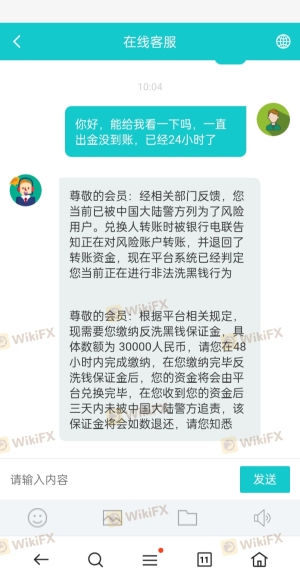Is Robinhood safe?

Pros
Cons
Is Robinhood A Scam?
Introduction
Robinhood, a prominent player in the online brokerage space, has gained significant attention since its inception in 2013. Known for pioneering commission-free trading, Robinhood has positioned itself as a user-friendly platform aimed at democratizing access to financial markets, particularly for younger and less experienced investors. However, with its rapid rise, concerns have surfaced regarding its business practices, regulatory compliance, and overall safety for investors. It is crucial for traders to carefully evaluate the legitimacy and reliability of any brokerage they consider using, as the stakes in trading can be high, and the potential for losses is real. This article aims to assess whether Robinhood is a trustworthy brokerage or if there are underlying issues that warrant caution. The investigation is based on a thorough analysis of regulatory compliance, company background, trading conditions, customer feedback, and security measures, providing a comprehensive overview of Robinhood's operations.
Regulation and Legitimacy
The regulatory framework within which a brokerage operates is critical to its legitimacy and the safety of its clients funds. Robinhood is regulated by the Securities and Exchange Commission (SEC) and is a member of the Financial Industry Regulatory Authority (FINRA). These regulatory bodies impose strict compliance requirements to protect investors and ensure fair trading practices.
| Regulatory Body | License Number | Regulatory Region | Verification Status |
|---|---|---|---|
| SEC | 8-69188 | United States | Verified |
| FINRA | 165998 | United States | Verified |
Robinhoods affiliation with the Securities Investor Protection Corporation (SIPC) further enhances its credibility, as it provides coverage for customer securities up to $500,000, including a cash sub-limit of $250,000. However, it is important to note that SIPC insurance does not protect against losses due to market fluctuations. Furthermore, Robinhood has faced scrutiny and fines from regulatory authorities in the past, including a notable $65 million settlement with the SEC for misleading customers regarding the execution prices of their trades. This history of regulatory infractions raises questions about the brokerage's commitment to compliance and investor protection.
Company Background Investigation
Robinhood was co-founded by Vladimir Tenev and Baiju Bhatt, both Stanford graduates, who sought to create a brokerage that would make investing accessible to everyone, not just the affluent. The company quickly gained traction, reaching millions of users within a few years. Robinhood's ownership structure is primarily private, although it went public in July 2021, allowing it to raise significant capital and expand its offerings.
The management team at Robinhood has a diverse background in technology and finance, which has contributed to the platform's innovative approach. However, the company has faced criticism for its lack of transparency and for employing gamification techniques that some argue encourage risky trading behavior among inexperienced investors. The platform's design, which includes features like confetti animations for trades, has been highlighted as potentially misleading, leading users to treat trading as a game rather than a serious financial activity.
Trading Conditions Analysis
Robinhood's trading conditions are characterized by a commission-free model that has attracted a significant user base. This structure allows users to trade stocks, ETFs, options, and cryptocurrencies without incurring traditional brokerage fees. However, the absence of commissions does not mean that all costs are eliminated.
| Fee Type | Robinhood | Industry Average |
|---|---|---|
| Major Currency Pair Spread | Variable | 1-3 pips |
| Commission Model | $0 per trade | $0 - $10 per trade |
| Overnight Interest Range | 2.5% - 12% | 5% - 10% |
While Robinhood does not charge commissions, it generates revenue through payment for order flow, which has raised ethical concerns about potential conflicts of interest. Additionally, users may encounter hidden fees, such as a $100 outgoing transfer fee, which is notably higher than the industry average. This fee structure can create challenges for users looking to transfer their assets to other brokerages.
Customer Funds Safety
The safety of customer funds is paramount for any brokerage. Robinhood employs several measures to protect investor assets. These include segregating customer funds from the company's operational funds and providing SIPC insurance coverage. Furthermore, Robinhood offers cash management accounts that are FDIC-insured up to $1.25 million through partner banks, significantly exceeding the standard $250,000 limit.
However, Robinhood has faced security concerns in the past, including a data breach in November 2021 that exposed personal information of millions of customers. While the company stated that sensitive financial information was not compromised, the incident raised alarms about its data protection practices. Investors should remain vigilant regarding the security of their personal information and the measures that Robinhood has in place to safeguard their accounts.
Customer Experience and Complaints
Customer feedback regarding Robinhood is mixed, with many users praising its user-friendly interface and the ease of trading. However, there are significant complaints related to customer service and technical issues.
| Complaint Type | Severity | Company Response |
|---|---|---|
| Account Access Issues | High | Slow response times |
| Trade Execution Problems | Medium | Limited support |
| Withdrawal Delays | High | Complicated process |
Common complaints include difficulties in accessing accounts during periods of high trading volume, which can lead to significant financial losses. Additionally, users have reported delays in fund withdrawals, which can be frustrating for those seeking quick access to their capital. The company has made strides to improve customer support, but it still lags behind more established brokerages.
Platform and Trade Execution
The Robinhood trading platform is designed for simplicity, allowing users to execute trades quickly and easily. However, this streamlined approach has its drawbacks, particularly regarding order execution quality. Users have reported instances of slippage and delays during high market volatility, which can impact trading outcomes.
The platform's execution quality has been a point of contention, especially in light of Robinhoods payment for order flow model. Critics argue that this practice may lead to inferior execution prices for customers, as trades are routed through third-party market makers rather than directly to exchanges.
Risk Assessment
Using Robinhood presents several risks that potential users should consider.
| Risk Category | Risk Level (Low/Medium/High) | Brief Description |
|---|---|---|
| Regulatory Compliance | Medium | History of fines and scrutiny |
| Customer Support | High | Limited responsiveness and availability |
| Data Security | Medium | Past data breaches raise concerns |
| Trading Execution | High | Potential for slippage and order delays |
To mitigate these risks, investors should conduct thorough research before making trades, utilize two-factor authentication for account security, and consider diversifying their investments across multiple platforms to avoid over-reliance on Robinhood.
Conclusion and Recommendations
In conclusion, while Robinhood is a legitimate brokerage with a significant user base and innovative features, it is not without its issues. The platform's history of regulatory infractions and customer complaints raises concerns about its reliability and the safety of investor funds.
For new investors, Robinhood can be an attractive option due to its commission-free trading and user-friendly interface. However, it is essential to be aware of the potential risks and limitations associated with the platform. Those seeking a more comprehensive trading experience with better customer support and research tools may want to consider alternatives such as Fidelity, Charles Schwab, or Webull.
Ultimately, potential users should weigh their individual trading needs against the benefits and drawbacks of using Robinhood, ensuring they make an informed decision that aligns with their investment goals.
Is Robinhood a scam, or is it legit?
The latest exposure and evaluation content of Robinhood brokers.




Robinhood Similar Brokers Safe
Whether it is a legitimate broker to see if the market is regulated; start investing in Forex App whether it is safe or a scam, check whether there is a license.
Robinhood latest industry rating score is 1.58, the higher the score the safer it is out of 10, the more regulatory licenses the more legitimate it is. 1.58 If the score is too low, there is a risk of being scammed, please pay attention to the choice to avoid.